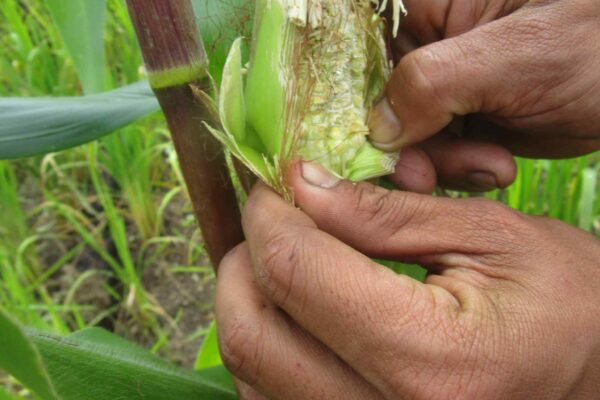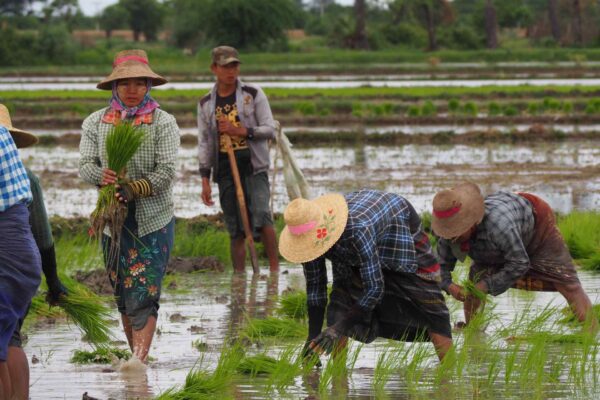With support from IDRC-Canada and CGIAR, IIRR is implementing four Climate-Smart Villages (CSVs) in Myanmar across the diversity of Mynamar’s agro-ecological zones: the mountainous region of Chin State, the central dry zone in Mandalay, the hilly plateaus of southern Shan state, and the river delta in Ayeyarwaddy region. These CSVs serve as platforms for the development of community-based climate resilient agriculture in Myanmar. This work includes building resilient farming systems, fostering the economic empowerment of women, and strengthening household food security. Over the past 3 years, IIRR has engaged with at least 500 male and female smallholder farmers during this process of implementing climate-smart activities throughout farms, homesteads and village schools.
One of our CSVs, Htee Pu village, is located in the central dry zones of Myanmar. This village has coped with low and erratic rainfall for centuries, with farmers practising long-established farming techniques to cope with these weather patterns. However, climate change is posing new and more intense challenges for this community: the area faces increasingly unpredictable rainfall patterns, soil erosion, and prolonged periods of drought. Over the past 10 years, Htee Pu villagers have noted drought periods occurring more frequently, which has brought significant impacts to the livelihoods of smallholder crop farmers.
IIRR initiated participatory research with villagers to identify activities which could regenerate agricultural land and restore agrobiodiversity, with the incentive of improving food security and creating food systems which are elastic in the face of extreme weather events. From this research, climate-smart varieties of drought resistant crops such as sorghum, peanuts and pigeonpea were introduced, with farmers trialing a number of varieties and selecting the best-performing crops to take forward on their farms. To address nutrition concerns in the village, protein-rich legumes which had been ‘lost’ from the farming system were reintroduced. Seeds of drought-tolerant hyacinth beans were distributed to 50 farmers, enhancing agrobiodiversity and providing a nutrient dense food source for households.





